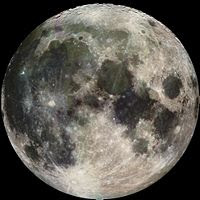Introduction to Fortune Telling Its Origin and Short History
All throughout history, with the advent of astrology, numerology and the tarot, civilizations of different culture have also become interested in  matters of fortune-telling, with many people asking their future from psychics.
matters of fortune-telling, with many people asking their future from psychics.
Fortune-telling is basically the practice of predicting events and happenings about a person's life. Its scope is said to be in principle identical with the practice of divination, with a difference that fortune-telling implies it is done in a less serious or formal setting.
History of Fortune-Telling
Here are quick points of interest about fortune-telling history and origin:
- it is said that fortune-telling, historically-speaking, emerges out of folkloristic reception of Renaissance magic, specifically associated with Gypsies
- it is also believed that fortune telling have hundreds of techniques, many of which date back to before recorded history
there is evidence that indicates there are forms of fortune-telling that were practiced in ancient China, Egypt, Chaldea, and Babylonia as long as 4000 BC
- it is also evidenced that prophetic dreams and oracular utterances have played an important part in ancient religion and medicine
during the 19th and 20th century, there are methods of divination from non-Western cultures, such as the I Ching, that were also adopted as methods of fortune-telling in western popular culture
- it is also evidenced that every culture has developed its own forms of fortune-telling as seen from the oracles of ancient Greece which are said to have predicted the birth of heroes and triumph on the battlefield as well as from medieval kings' court astrologers and wizards who were consulted about political matters and marriage choices.
- There many predictive methods of fortune-telling and these include astrology which is an interpretation of the movements of heavenly bodies as influences on earthly events, numerology which is the study of numbers, and the usage of objects such as playing cards, tarot card, tea leaves, crystal balls, dice, fire, water, and scattered salt.
- There are also fortune-telling that come as a process of character analysis which take such forms as graphology or the study of handwriting, physiognomy or the study of facial characteristics, phrenology or the study of contours on the skull ,and palmistry or the study of lines on the palm of the hand
- Europeans and Americans, consider fortune-telling as a sin within Judaism and Christianity and civil laws have forbidden the practice.
- psychics were prized advisers to the Assyrians 5000 years ago; however, they lost respect and reverence during the rise of Reason in the 17th and 18th centuries
- fortune telling comes in many different forms, with the most primitive, clumsy, yet enduring method is the simple recording of sequences of important events
- this simple recording of sequences of important events have led to the practice of telling the future via omens
may be considered either good or bad depending on their readings. In telling the future via omens, the same sign may be interpreted differently by different people or different cultures

Comments
Post a Comment